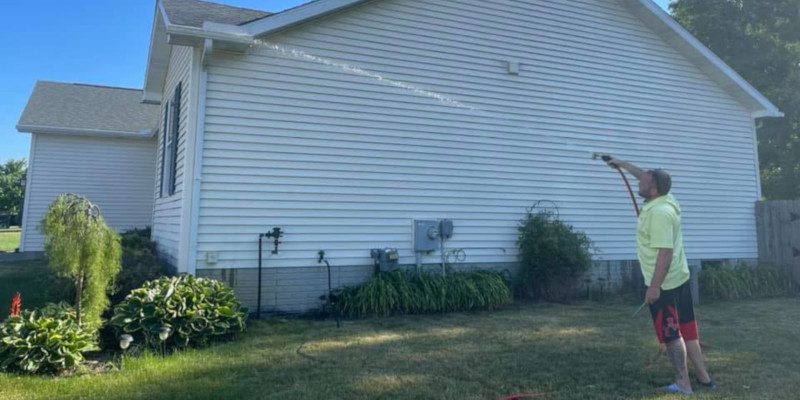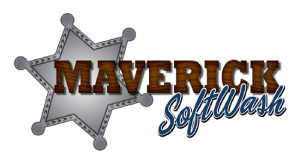Trust our trained professionals for pressure washing.
Mold and red clay can make your driveway slippery, leaving it hazardous to walk on and unappealing to look at. If you notice dirt or contaminants on your driveway, it is high time you found someone to clean it. Trust our trained team at Maverick SoftWash with the job for superior results. We use professional-grade pressure washing equipment to clean exterior surfaces that have grown disgusting over time, and once our professionals step in to clean the areas that have accumulated dirt, you will finally be able to relax.

We offer pressure washing for all the hard, durable surfaces at your St. Louis, Missouri home or commercial property. Whether it’s your driveway, walkways, parking lot, or patio that requires our attention, we will make sure to apply the right amount of pressure. Through our careful attention, we can remove the dirt and stains without damaging your surfaces, revealing a bright and beautiful appearance underneath.
Pressure washing is ideal for concrete, brick, and stone that can withstand higher pressure. However, if your surfaces suffer from organic buildup, such as mold, mildew, algae, and moss, we could provide soft washing as a solution. This is a gentle method that uses a proprietary cleaning solution to kill contaminants, ensuring long-lasting results.
You can enjoy a clean and beautiful driveway, parking lot, walkway, or patio again when you enlist our help for pressure washing. You can rest assured that we have the proper training to use our equipment and that our uniformed, background-checked team will treat your property with respect. Contact us today for a free quote.
At Maverick SoftWash, we offer pressure washing services for customers in St. Louis, Des Peres, Valley Park, Kirkwood, Fenton, Webster Groves, Creve Coeur, O’Fallon, Wildwood, Ballwin, and Chesterfield, Missouri.
